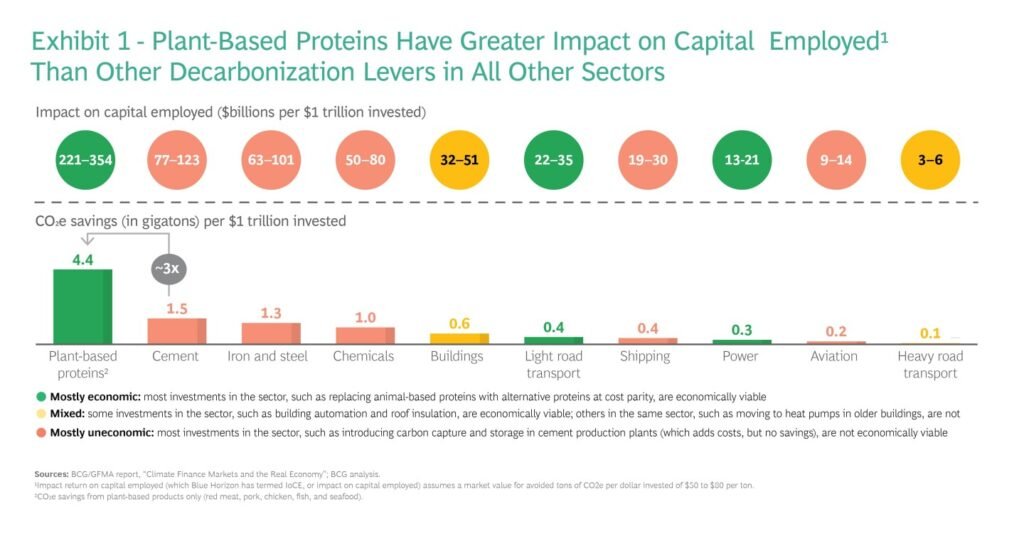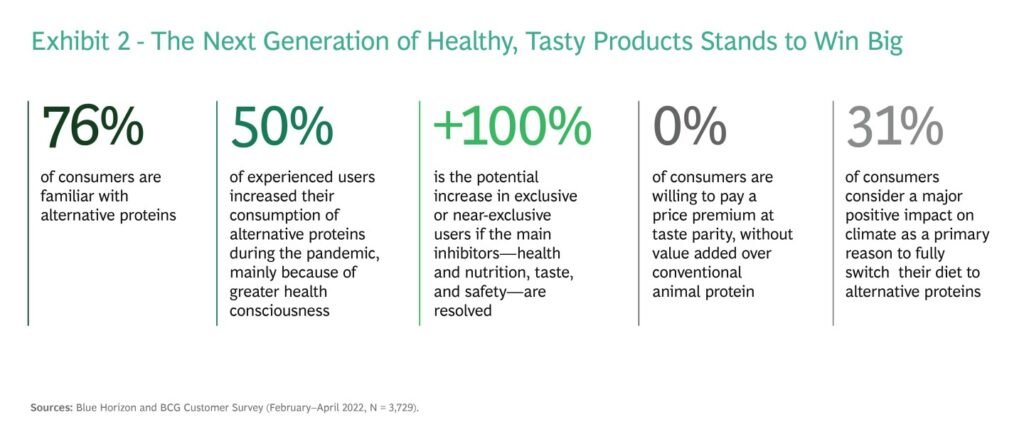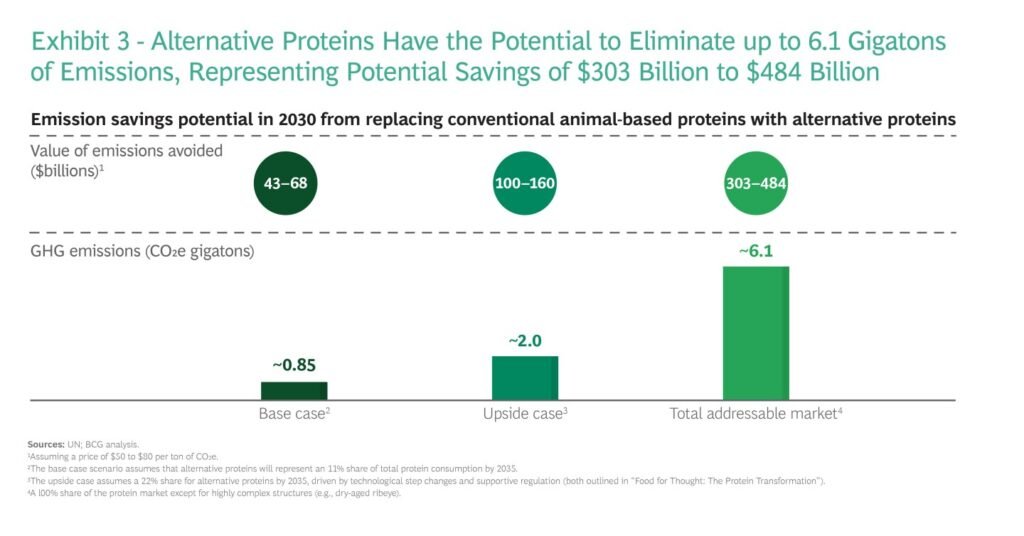The Boston Consulting Group (BCG), a worldwide consulting firm, has released a report that demonstrates that investing in plant-based alternatives saves far more greenhouse gas (GHG) than many other investment options.

More good news: shifting human diets away from meat toward vegetables means less forest is destroyed for pasture and fodder production, as well as less emissions of the strong greenhouse gas methane generated by cattle and sheep.
Plant-based alternative investment has increased from $1 billion in 2019 to $5 billion in 2021. Currently, alternatives account for only 2% of all meat, egg, and dairy products marketed, but current growth patterns show that they will increase to 11% by 2035.

The overall increase in alternative protein investments is consistent with a greater worldwide focus on sustainable investments that have the potential to provide a solution to the climate challenge.
Scientists have found that eliminating meat and dairy products is the single most effective approach to lower your carbon footprint. Large adjustments in meat consumption in developed countries are required to resolve the climate catastrophe.

The food system is responsible for 26% of current GHG emissions. Animal agriculture, the major GHG emitter within the food system, accounts for 15% of world emissions, approximately equaling transportation emissions. If we maintain our current rate of alternative protein adoption at 11% by 2035, we will save 0.85 gigatonnes of CO2 equivalent worldwide by 2030.
Because our food system is at the center, we must make a rapid transition to a compassionate, healthy, and climate-friendly food system.
Reference- Boston Consulting Group (BCG) Report, The Guardian, Forbes, National Geographic, Plant-Based Treaty






